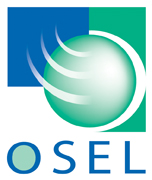MucoCept Technology Platform
Mucosal surfaces are the portal of entry for most viruses. In women the vagina and cervix are the major sites where the Human Immunodeficiency Virus type 1(HIV-1) enters the body during sexual intercourse. These mucosal surfaces are colonized with a natural microbiota, mainly Lactobacillus, which help to protect the mucosa. Lactobacilli produce lactic acid, which lowers vaginal pH and promotes a healthy epithelium. Lactobacilli are also thought to have a role in immune modulation, reducing inflammation; vaginal inflammation is a risk factor for HIV infection because inflammatory cells are targets for the virus. The MucoCept platform leverages this natural microbiota and enhances it to prevent infection. Using a proprietary technology, Lactobacillus jensenii has been genetically modified to secrete a single additional protein, a potent HIV entry inhibitor, that reduces viral transmission at the mucosa.

Read More: MucoCept for HIV
Osel is developing MucoCept to colonize vulnerable mucosal surfaces with commensal bacteria genetically modified to produce high levels of potent HIV-binding proteins. Such proteins are either secreted or surface-displayed molecules that sequester viruses, impeding the access of viruses to underlying epithelial cells and lymphocyte targets.
The genetically-modified LBPs secret antiviral compounds that can inactivate viruses trapped in the epithelium, aborting the infectious process and/or significantly reduce the number of infectious viral particles (US Patent #5,733,540). This novel approach creates a barrier to HIV transmission that is different from, yet compatible with, current antiviral therapies, future vaccines, and other barrier methods.
The approach is relatively inexpensive to manufacture, store, and distribute. As a live, self-renewing “microbicide” the MucoCept LBPs would not need to be administered at the time of sexual activity, i.e., it is “coital-independent.” Administration is discreet and fully controlled by the female users.
Based on Osel’s experience with LBPs, the bacterial strains used for MucoCept are expected to have minimal, if any, clinical toxicity, compared to chemical microbicides and antiviral drugs. In addition, MucoCept would not have the added problem of harming the normal bacterial which protects the vaginal mucosa and underlying epithelial cells. Over the past several years, Osel has made substantial progress in the development of this novel topical microbicide (see more in Publications).
MucoCept has undergone a positive “proof of concept” study. It has demonstrated the ability to prevent HIV transmission in rhesus macaques vaginally colonized with an LBP engineered to secrete the potent HIV inhibitor, cyanovirin-N. The development of this MucoCept bacterium represents a major step towards the advancement of an inexpensive, yet durable, protein-based microbicide to address the urgent need for female-initiated approaches to block the heterosexual transmission of HIV.
The MucoCept program is supported in part by NIH/NIAID IPCP, Partnerships for Topical Microbicides, Microbicide Innovation Program, USAID funding through the International Partnership for Microbicides, CONRAD Global Microbicide Project, and the Bill and Melinda Gates Foundation.
